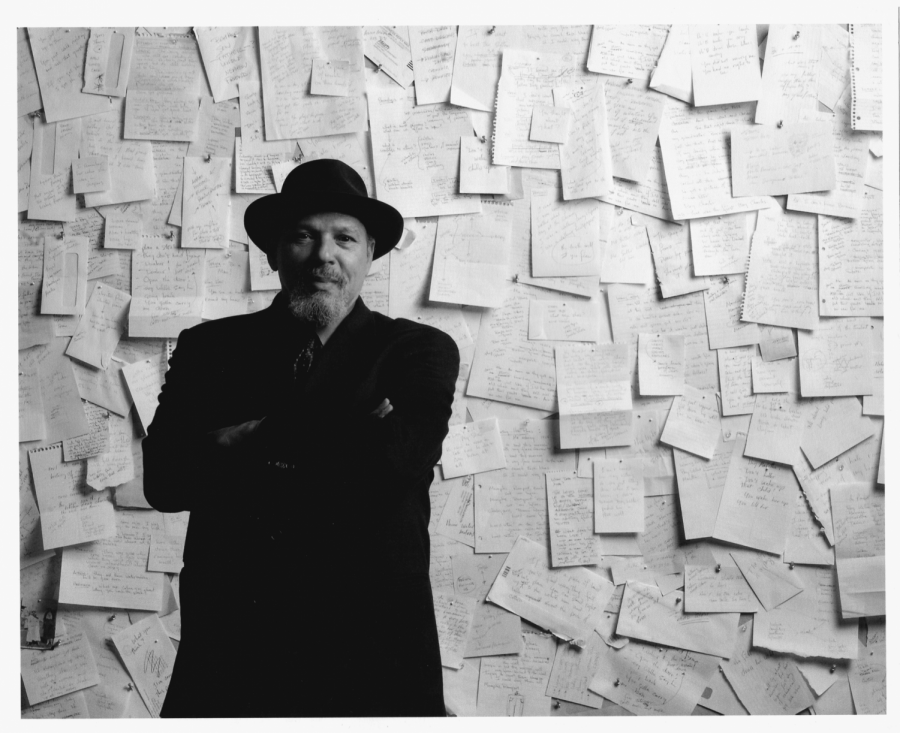Pitt acquires archive of late playwright August Wilson
Photo Courtesy of the August Wilson Archive
Playwright August Wilson was born and raised in Pittsburgh’s Hill District.
October 29, 2020
Playwright August Wilson was born and raised in Pittsburgh’s Hill District. And although he spent the last 15 years of his life in Seattle, part of his legacy has returned to his hometown.
Pitt announced Thursday that the University Library System has acquired the August Wilson Archive. Wilson wrote the Pulitzer Prize-winning plays “Fences” and “The Piano Lesson,” which are part of his 10-play “Pittsburgh Cycle,” or “American Century Cycle.” The plays in that series take place in the Hill District and address Black experience during each decade of the 20th century.
The archive contains over 450 boxes of material, including drafts of scripts for Wilson’s published and unpublished plays, personal correspondences with friends and colleagues and his Pulitzer Prize certificates. ULS director Kornelia Tancheva said this archive is “the most significant archival collection the University of Pittsburgh has acquired to date.”
“It presents unprecedented opportunities for engagement for our students and the local community,” Tancheva said. “The August Wilson Archive supports our mission of preserving and making accessible the cultural heritage of the region, the country and the world, and specifically our focus on underrepresented voices and the cultural production of African American artists.”
Wilson’s first play with a theater company, a 1976 production of “Homecoming,” took place at Kuntu Repertory Theatre in Oakland with the help of Pitt professor Vernell Lillie. Wilson also worked with Bob Johnson, a former faculty member of the Africana Studies department, to produce “Jitney” in 1982. ULS currently houses collections related to Kuntu Repertory Theatre, Lillie and Johnson.
ULS obtained the August Wilson Archive, which it will begin to process in early 2021, with the help of Wilson’s widow and executor of his estate, Constanza Romero. Romero reflected in a statement on the influence of Pittsburgh on Wilson’s work.
“He left Pittsburgh in 1978, but he took the Hill, the three rivers, the streets, the steel mills, the fish sandwich shops and the cadence of the language he heard in cigar stores and barbershops with him,” she said. “This and more became the cultural richness that the playwright would pour into his 10-play magnum opus, the ‘American Century Cycle.’”
ULS said it plans to make the archive available for research and programming, and hopes to work with Pitt’s Community Engagement Centers to bring the collection to local communities. The library system will also provide the August Wilson African American Cultural Center in Downtown with materials for an upcoming permanent exhibit, called “August Wilson: The Writer’s Landscape,” according to Tancheva.
Although the archive will bring the playwright’s legacy back to the City where he started his career, Chancellor Patrick Gallagher said Pitt’s acquisition of the archive is “about more than bringing August Wilson back home.”
“This archive deftly puts the experiences of Black Americans beneath an intimate magnifying glass and unpacks themes of injustice and inequity that are just as relevant today as when Wilson’s first play debuted,” Gallagher said. “The University of Pittsburgh is proud to do our part in keeping August Wilson’s brilliance — for those in Pittsburgh and far beyond — alive, and we are deeply grateful to Constanza for entrusting us with this task.”



